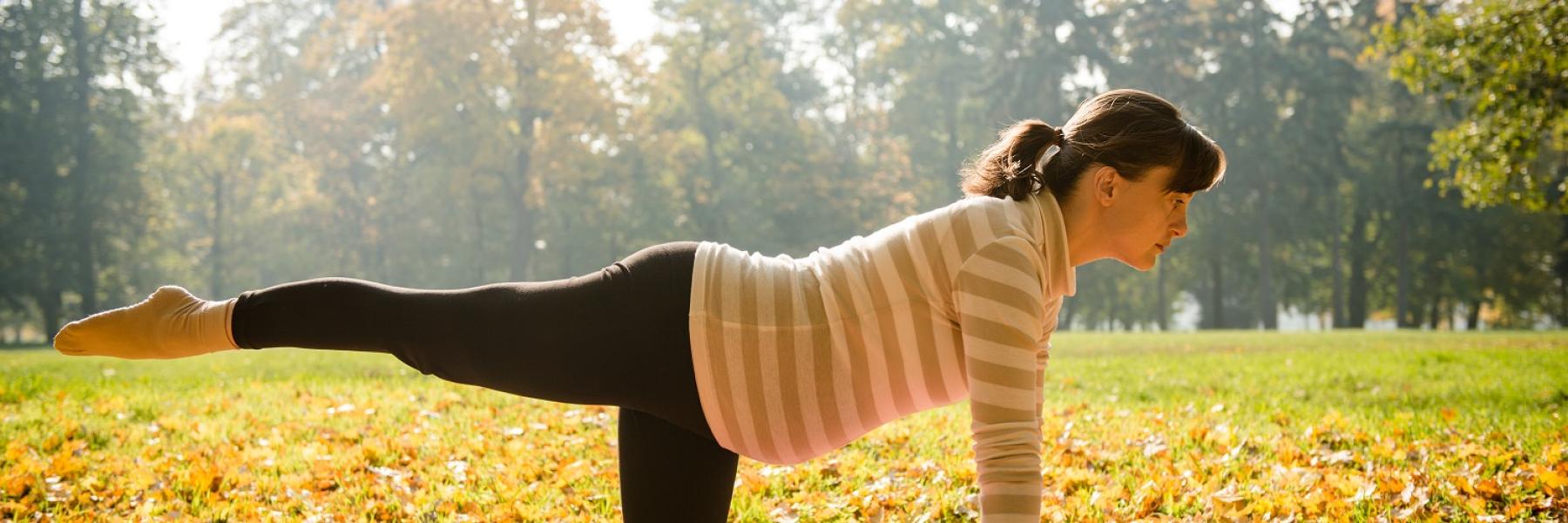
Exercise during Pregnancy
Being active prior to and during pregnancy brings many health benefits, including reduced back pain and better preparation for birth. Exercise helps to:
-
Increase insulin sensitivity for 24-48 hours, reducing risk of gestational diabetes.
-
maintain your strength for childbirth and the demands of being a mother like, lifting, carrying and nursing your baby.
-
reduce the chances of an assisted delivery, such as caesarean or forceps deliveries.
-
reduce the risk of blood pressure problems.
-
manage mood and stress during pregnancy and after baby is born.
-
reduce bowel issues- making sure you eat enough fibre and drink plenty of water.
What Type of Exercise Could I Do?
If you have never exercised before, start slowly, with around 15 minutes of gentle exercise a day, such as walking, and build up over the coming weeks.
If you are usually active, 30 minutes most days is recommended. The intensity of the exercise should allow you to still talk while doing the exercise.
Suggested activities may include:
- Walking
- Swimming/Aquarobics
- Cycling
- Jogging (only if experienced runner)
- Strengthening exercises
- Yoga/Pilates (tell the instructor you are pregnant)
Let your body be the guide. You can safely exercise during pregnancy if you have no complications and it remains comfortable for you.
If you need advice about exercise in pregnancy, you can talk to an Exercise Physiologist, or Physiotherapist.

Pelvic floor health
Along with exercising your whole body, it is essential that you exercise your pelvic floor muscles during pregnancy.
Your pelvic floor muscles can weaken and widen during pregnancy, so regular targeted exercise is important to avoid problems with bladder and bowel control after giving birth. Below is an example of some of the exercises you could perform at home. The Continence Foundation of Australia also has information on pelvic floor muscle training on their website.
What Types of Exercise to Avoid?
While keeping active during your pregnancy is important for your health and the health of your baby, there are some actions or activities that should be avoided:
-
rapid changes in position, due to drop in blood pressure during the second trimester;
-
strenuous exercise in hot or humid weather;
-
activities that increase abdominal pressure, like heavy weightlifting;
-
activities that might cause collision or heavy contact with the abdomen such as contact sports like martial arts, soccer, basketball, hockey, etc.
-
activities that affect blood pressure or oxygen flow, e.g., sky diving or scuba diving.
-
lying on your back after 20 weeks, as the weight of the baby can slow the return of blood to the heart.
For more information on how to exercise safely in pregnancy or returning to exercise see the links below:
Related Articles:
Healthy Eating for a Healthy Pregnancy
Healthy Weight Gain in Pregnancy
[SMA Position Statement Exercise in Pregnancy and Post-Partum, 2016; Continence foundation of Australia, 2021; Pregnancy Birth and Baby, 2021; The Royal Women’s Hospital Victoria, Raising Children Network, 2020.]



